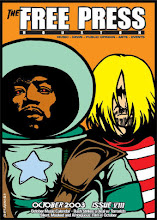Soul Power

Soul Power shines the light of day on a concert that took place over a weekend in 1974 at Kinshasa, Zaire. The concert coincided with the Ali-Foreman Rumble in the Jungle heavyweight fight although the concert took place weeks before the actual bout. The fight and concert were shot documentary style but until now only the only docu to see sunshine was When We Were Kings (1996).
Soul Power contains enough rock, soul and style to stand on its own. Director Jeffrey Levy-Hinte, himself a producer with a long line of credits as well as editor on When We Were Kings, assembles the film verite style from the over 100 hours of footage captured during the initial shoot. We observe the behind the scenes scramble to turn a stadium into a concert venue while also following some of the musicians first in New York, and then after they arrive in Africa. Clips of Ali reminds of his eloquence and charisma at the height of his fame.
At the mid-point Soul Power shifts gears and the momentum is startling. An eclectic mix of music unwinds with Bill Withers, Miriam Makeba, B. B. King, The Spinners, The Crusaders, along with many others. The show concludes with a powerful James Brown performance. Brown has a move where he tilts the mic on its stand causing it to sway and tip over. In the meantime Brown spins, does a perfect split and comes up catching the mic stand before it's halfway to the stage.
Soul Power moves with a swift pace and constantly keeps the viewer interested in the bigger picture of the spectacle. As concert documentaries go it's one of the best.










